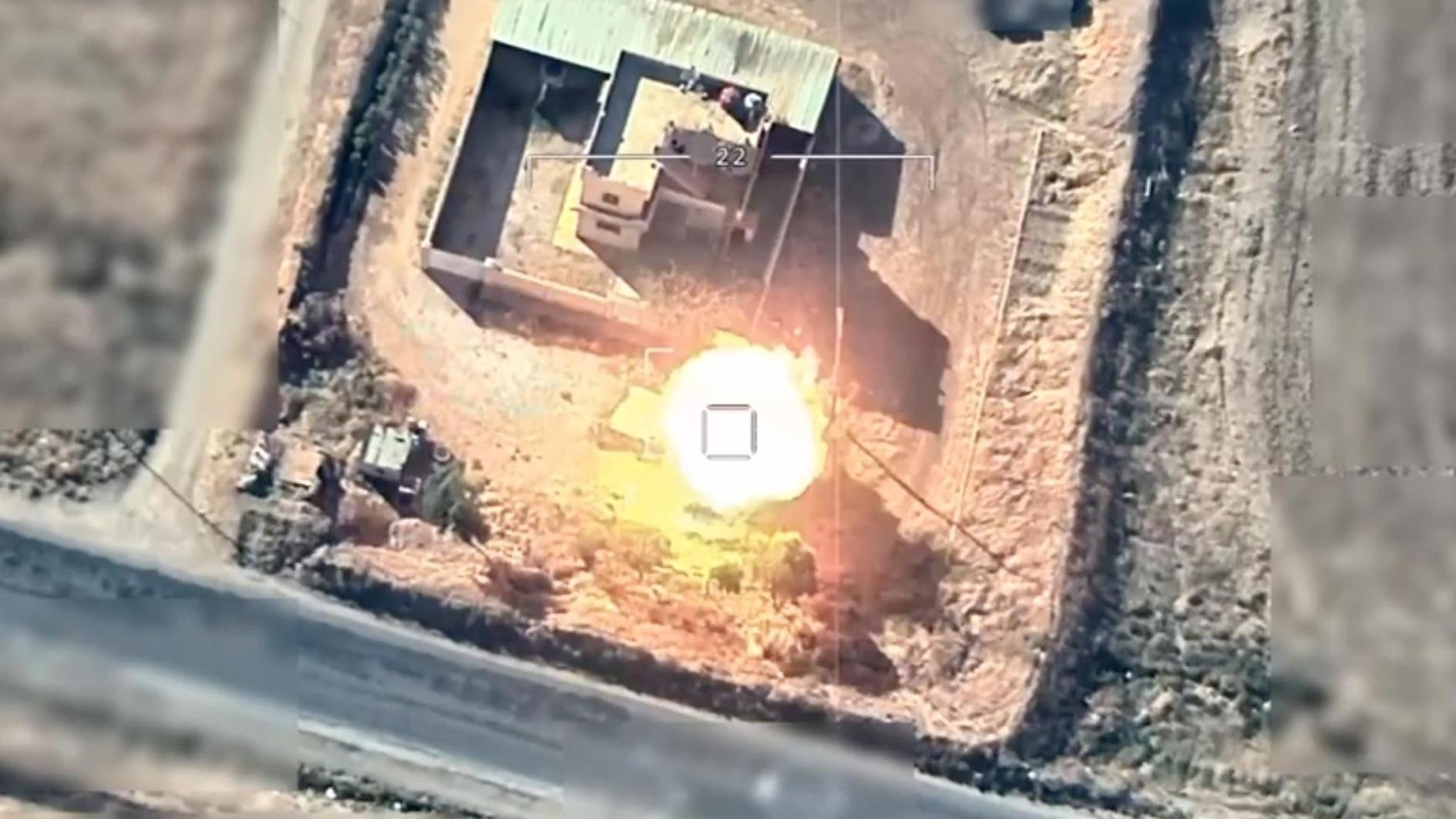
Türkiye struck PKK targets in Syria and Iraq for a second day on Oct. 24 following an attack on the premises of a key defense company that killed at least five people.
The National Intelligence Organization (MİT) targeted "numerous strategic locations" used by PKK or those affiliated with the organization, state-run Anadolu Agency reported.
The targets included military, intelligence, energy and infrastructure facilities and ammunition depots, the report said. A security official said armed drones were used in the strikes.
On Oct. 23, Türkiye's air force carried out airstrikes against similar targets in northern Syria and northern Iraq, hours after government officials blamed the deadly attack at the headquarters of the aerospace and defense company TUSAŞ on PKK.
Defense Minister Yaşar Güler said 47 PKK targets were destroyed in Oct. 23's airstrikes — 29 in Iraq and 18 in Syria.
"Our noble nation should rest assured that we will continue with increasing determination our struggle to eliminate the evil forces that threaten the security and peace of our country and people until the last terrorist disappears from this geography," Güler said.
The assailants arrived at the TUSAŞ premises on the outskirts of Ankara in a taxi they commandeered after killing its driver, reports said.
Armed with assault rifles, they set off explosives and opened fire, killing four people at TUSAŞ, including a security guard and a mechanical engineer.
Security teams were dispatched as soon as the attack started at around 3:30 p.m. The two assailants were also killed and more than 20 people were injured in the attack.
Interior Minister Ali Yerlikaya named the assailants as Mine Sevjin Alçiçek and Ali Örek and identified them as PKK members.
TUSAŞ designs, manufactures and assembles civilian and military aircraft, unmanned aerial vehicles and other defense industry and space systems.
Its defense systems have been credited as key to Türkiye gaining an upper hand in its fight against PKK and its affiliates.
Meanwhile, President Recep Tayyip Erdoğan convened a security meeting in Istanbul on Oct. 24, security sources said.
Among the attendants were Vice President Cevdet Yılmaz, Foreign Minister Hakan Fidan, Interior Minister Ali Yerlikaya and Güler. Chief of General Staff Metin Gürak and MİT head İbrahim Kalin were also present.
The meeting focused on the TUSAŞ attack and the steps needed in the ongoing counterterrorism efforts.
Officials said the country will not allow the establishment of a "terroristan" across its borders.
In a related development, the U.N. Security Council has condemned the attack in the Turkish capital.
"The members of the Security Council underlined the need to hold perpetrators, organizers, financiers and sponsors of these reprehensible acts of terrorism accountable and bring them to justice," said a joint statement from members.
Urging all countries to cooperate "actively" with Türkiye and other relevant authorities, the council further said that "any acts of terrorism are criminal and unjustifiable, regardless of their motivation, wherever, whenever and by whomsoever committed."
It also reaffirmed the need to combat "threats to international peace and security caused by terrorist acts" in accordance with international law and the U.N. Charter.
The attack occurred a day after Nationalist Movement Party (MHP) leader Devlet Bahçeli raised the possibility that PKK’s imprisoned leader could be granted parole if he renounces violence and disbands his organization.
Abdullah Öcalan, captured in 1999, is serving a life sentence on a prison island off Istanbul.